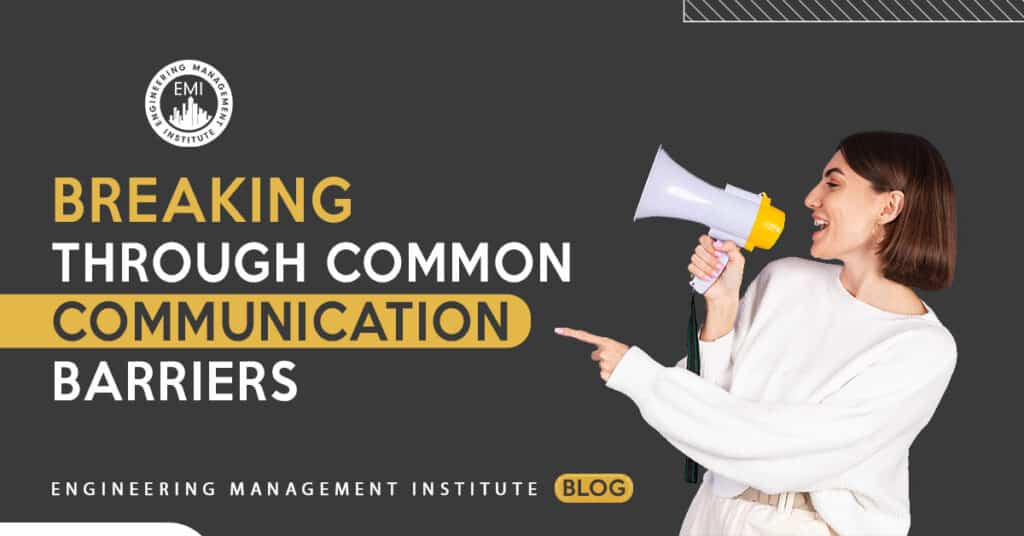Image by kroshka__nastya on Freepik
This article highlights three common communication barriers that might be holding you back. Learn what you can do to break through these barriers and form newfound connections through improved communication!
1. “I’m Afraid to Speak Up”
The work environment can be intimidating, rampant with older, more experienced folks who seem to know what they’re doing.
For those of you afraid to speak your mind or openly make suggestions, consider the following.
Speaking up is not always about being right. Sometimes it can be, but other times, speaking up can be about expressing ideas or unique thoughts that are worthy of being shared in the name of creating an open dialogue.
Your ideas and beliefs deserve consideration as a valued member of an organization. In fact, you get paid to share your ideas and perspectives. While silence may feel less risky and more comfortable, you could fail ahead of time by remaining speechless.
Part of your duty as an employee is to elevate and apply your talents, skills, and hidden gems. Thus, the world needs you to speak up.
Remember that silence is also a way of speaking up — it might be heard as loudly as any word you say.
Remember that too much silence is also a way of speaking up. It could express a lack of creativity, strategic thinking, or leadership potential.
2. “I’m Afraid to Ask Questions”
Have you ever heard silly or stupid questions asked out loud — in the classroom, at work, or out having fun? I bet you can cook up examples of “dumb” questions, or the “wrong” questions.
Has it ever happened to me? You bet! Did it perhaps make me feel insignificant or undignified? You bet!
However, icky feelings subside, as do the judgments around your so-called silly question. You move on to the next thing. People get back to their business. The issue is forgotten just as quickly as it appeared.
Or, perhaps you become enlightened. You might learn that others were also too afraid to ask the same question. Leadership expert Simon Sinek shares a comical example of a silly question he posed, not once but twice, in a room full of smart people. The response he received was pleasantly astounding!
Your questions can be a voice for others. They can lead to newfound and intellectually stimulating conversations. Questions can create connection with others.
Questions lead to knowledge, connections, and learning opportunities for all.
3. “I’m Afraid of Receiving Critical Feedback”
No doubt, feedback can be painful. It can be vulnerable. More profoundly, it can be educational.
The great thing to know about feedback is that everybody, regardless of experience or title, is on a path toward development.
There is no attainable point at which you (or anyone) can say, “Well, I’m as good as I’ll ever be, no need for additional improvements.” That would be absurd — everyone can use feedback!
One leadership strategy for receiving feedback is to initiate it. Start a feedback conversation by calling yourself out and asking others to weigh in. They could be customers, colleagues, management, etc. The more input, the more data, the more you can improve!
For example, you can approach a point of contact and ask:
- “I realize I struggle presenting and speaking clearly in front of a group. Would you mind offering some pointers?”
- “I notice my pattern of making mistakes ‘XYZ.’ Can you help me understand how to improve this moving forward?”
- “I am struggling to get along with certain personalities. Would you mind sharing tactics that work for you?”
Everybody can use constructive feedback because self-development is always a work in progress.
If you initiate your own feedback, not only will you mitigate the possibility of future shock, but you build the critical leadership trait of vulnerability.
About the Author Gina Covarrubias

Gina is the founder of Deliberate Doing, an exclusive STEM coaching service dedicated to helping engineers fix their careers. She solves the common STEM problem: “What should I be doing with my life?” As a former engineer, she identifies with the technical expert who doubts their personal or professional existence.
Gina’s distinctive background blends life coaching expertise with 12+ years engineering/technology experience in the government, academic and corporate environments, all within the aerospace sector.
We would love to hear any questions you might have or stories you might share on the things you do to break through common communication barriers.
Please leave your comments, feedback or questions in the section below.













